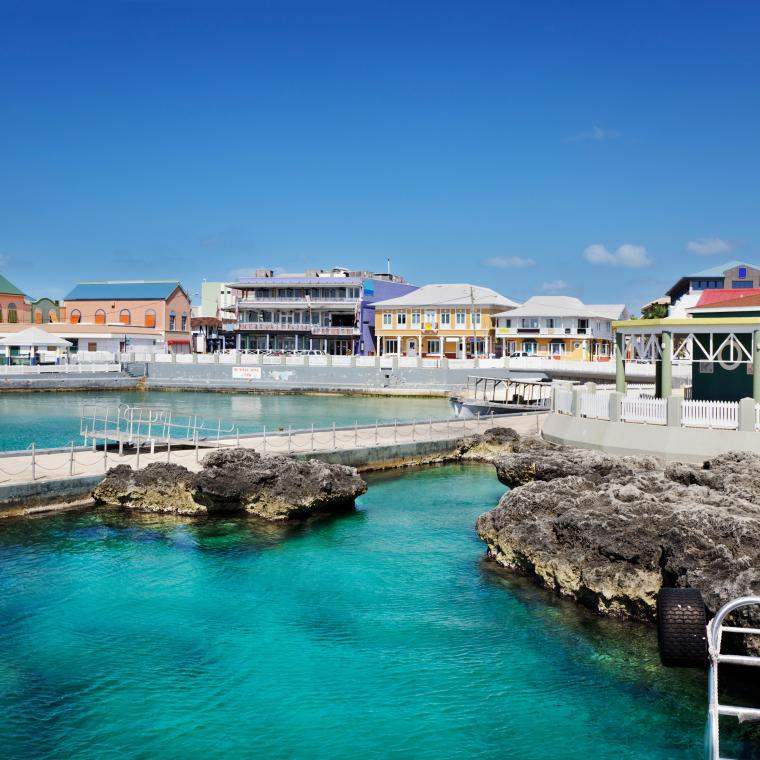
Kendra Foster, Managing Partner – Ocorian Law, and Nathaniel Luker, Partner – Ocorian Law, were recently featured in Financier Worldwide's In Depth article to discuss financial crime and the intricacies of the anti-money laundering (AML) regime in the Cayman Islands.
Q. To what extent is financial crime growing in frequency and complexity? How would you summarise recent trends in the Cayman Islands?
A. The Cayman Islands is a sophisticated international financial centre with a historically developed anti-money laundering (AML) regime. Its financial services offering has a strong focus on institutional business and it is often the jurisdiction of choice for investment fund, structured finance, acquisition, joint venture, borrowing and insurance vehicles and other sophisticated entities. As global financial crime has grown in frequency and complexity, the AML regime of the Cayman Islands has evolved significantly to combat it and to protect the jurisdiction’s standards and reputation.
Q. Could you outline some of the key legal and regulatory developments in the Cayman Islands affecting anti-money laundering (AML)? To what extent are companies operating under heightened scrutiny, and reacting accordingly?
A. Most of the recent legal and regulatory developments in the Cayman Islands share the theme of transparency. Whether it is tax transparency or structure transparency, the central aim is for official bodies to gain legitimate access to pertinent information to effectively monitor compliance. The Cayman Islands authorities which have access to submitted regulatory information are now able to cross-check that information under a regulatory regime supervised by the Cayman Islands Monetary Authority, an automatic exchange of tax information regime supervised by the Department for International Tax Cooperation, an economic substance regime also supervised by the Department for International Tax Cooperation, and a beneficial ownership regime supervised by the General Registry. It is essential to ensure that the information which will be submitted to each of these official bodies is aligned and consistent with the information which has been, or will be, submitted to each other body to withstand the heightened scrutiny.
Q. How would you describe AML monitoring and enforcement activity in the Cayman Islands? What problems may arise for multinational companies as a result of the extraterritorial reach of certain laws, and greater collaboration between national agencies?
A. AML monitoring and enforcement activities are necessary components of an effective AML regime. In support of these initiatives, certain monitoring obligations are placed on corporate and fiduciary services providers in the jurisdiction. These firms can add tremendous value in their roles as AML gatekeepers. For example, the Cayman Islands beneficial ownership regime requires certain entities to create and maintain beneficial ownership registers which enable local and international law enforcement agencies to obtain adequate, accurate and current beneficial ownership information in a reasonable timeframe. These registers are not available for inspection by members of the public. Under this regime, corporate and fiduciary services providers operating in the Cayman Islands play an important role in monitoring their clients’ compliance. Failure to comply may result in a services provider issuing a restrictions notice which will prevent certain actions from being taken in relation to the interest that is the subject of the notice until the notice is withdrawn, unless certain exceptions apply. These monitoring and enforcement requirements operate in tandem with the monitoring and enforcement capabilities of the General Registry.
Q. What steps should companies take to ensure adequate processes, programmes and policies are in place to support AML?
A. A sensible initial step is to ensure that legal counsel who will assist with the incorporation of the company has a strong regulatory team who will be able to advise the company on its AML obligations from the outset. Under Cayman Islands law, a company that is conducting relevant financial business is required to comply with AML regulations. These regulations require such a company to implement a robust AML programme. Once its AML obligations have been identified and understood, the selection of suitably qualified parties to perform the required AML officer roles will add a great deal of value to the company’s AML programme. The company may appoint directors or internal staff members as AML officers or outsource the performance of the roles to an experienced services provider. Ultimately, a company’s board is responsible for overseeing its AML processes, programmes and policies. Boards should ensure that there is diversity of expertise among their members. Where possible, a company which is conducting relevant financial business should ensure that at least one of its directors has relevant AML regulatory and compliance experience.
Q. In what ways can companies utilise technology to help manage risks arising from AML?
A. The Cayman Islands’ financial services market has benefitted greatly from internationally and locally developed regulatory technology (RegTech). When used properly, RegTech can creatively address and resolve AML issues, reduce the scope for human error and help to mitigate risks. As fines and penalties for non-compliance increase, the appeal and importance of RegTech are growing and the expense that it entails is becoming more justifiable. Wherever possible, entities conducting relevant financial business should use RegTech to conduct their risk assessments. An automated risk assessment system helps to manage risk by providing real-time assessments based on initial data points entered into the system as well as updated data points entered during the course of the business relationship. Risk assessment technology can also provide a platform for documenting decision making in relation to risk and providing useful information to regulators.
Q. What advice would you offer to organisations on integrating technology into their processes to enhance the efficiency of their AML capabilities and allow them to detect unusual behaviour and identify red flags?
A. The key to integrating RegTech into AML processes is to ensure that it is tailored to the specific requirements of each regulatory obligation which it is intended to address. Global businesses are often tempted to apply a ‘one size fits all’ approach to RegTech. However, RegTech that is suitable for the purposes of an onshore jurisdiction’s AML rules and requirements may not be suitable for the purposes of those of the Cayman Islands. Where technology is based on group policies and procedures, a gap analysis exercise will usually be appropriate and will ensure that differences are accounted for and appropriate standards are applied. Under the AML regime of the Cayman Islands, ongoing monitoring is a key regulatory requirement for the purpose of detecting unusual behaviour and identifying red flags. RegTech should be integrated in a way which allows it to register the risk profile of each client and ensures that high-risk clients are reviewed more frequently than low-risk clients.
Q. Do you expect the risks posed by money laundering to increase in the months and years ahead? Do companies need to continually improve their systems in order to deal with current and emerging threats?
A. The development of AML risks often depends on many fluctuating factors. When there is a global economic downturn, the risk of money laundering connected to financial fraud increases. Another factor is developments in international relations and their effect on the inclination of governments to impose sanctions. As a result of these factors, financial services providers look to government agencies to highlight increasing risks and new risks posed by money laundering on a periodic basis. A national risk assessment is periodically updated by the Cayman Islands’ AML Steering Group to consider changes in relevant factors and to ensure that the jurisdiction’s financial sector is aware of current risks. Under the AML regime of the Cayman Islands, a Cayman Islands entity is required to undertake a risk assessment to evaluate the inherent risk associated with undertaking relevant financial business based on the nature, size and complexity of the business. This assessment must take into account the findings of the national risk assessment. Getting the assessment right is a critical first step toward ensuring that AML risks are identified and managed in a way that is appropriate for the entity concerned. It enables an entity to understand what improvements it needs to make to address the risks that have been identified.
Read Financier Worldwide Magazine's full In Depth article here.


